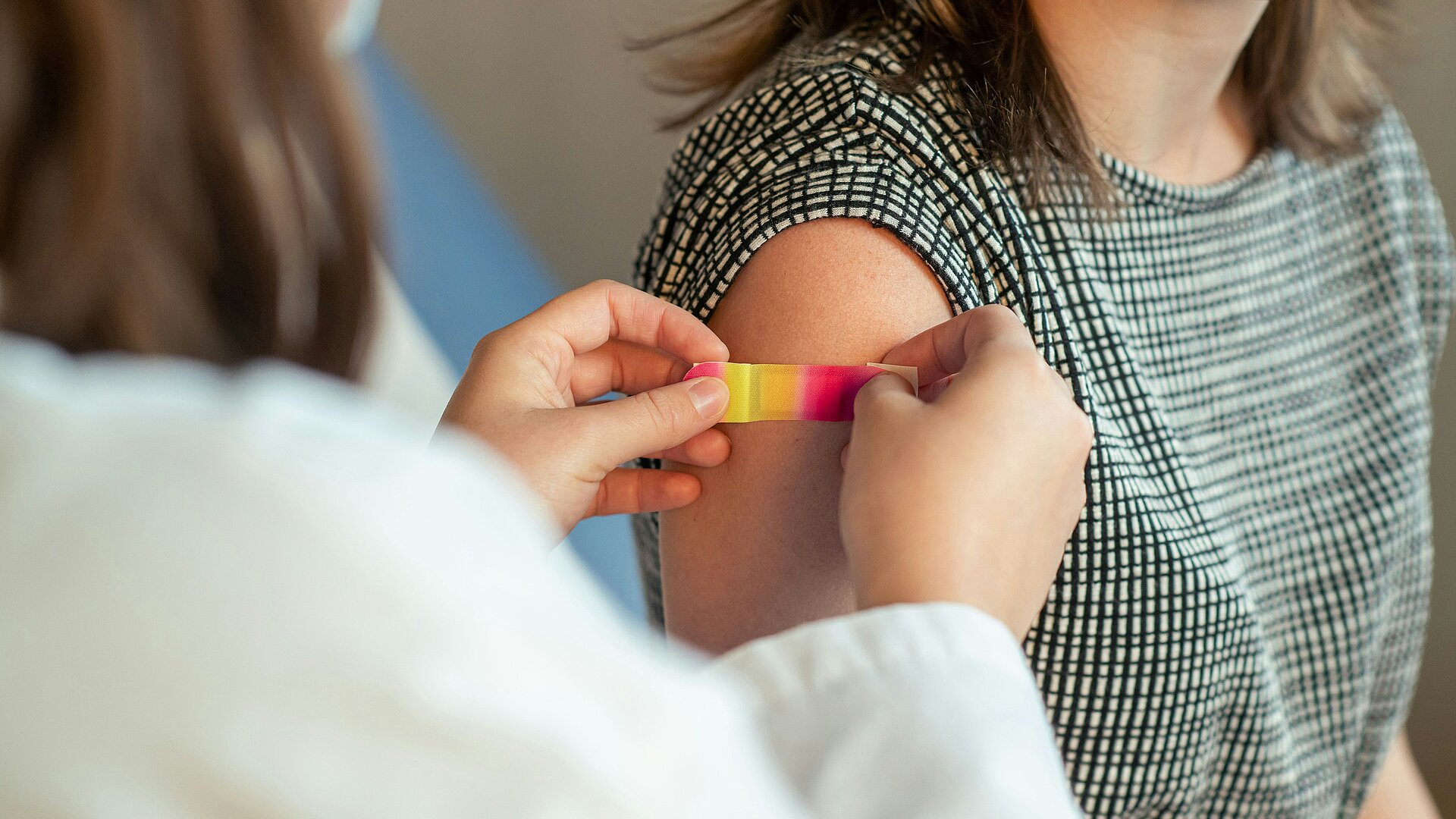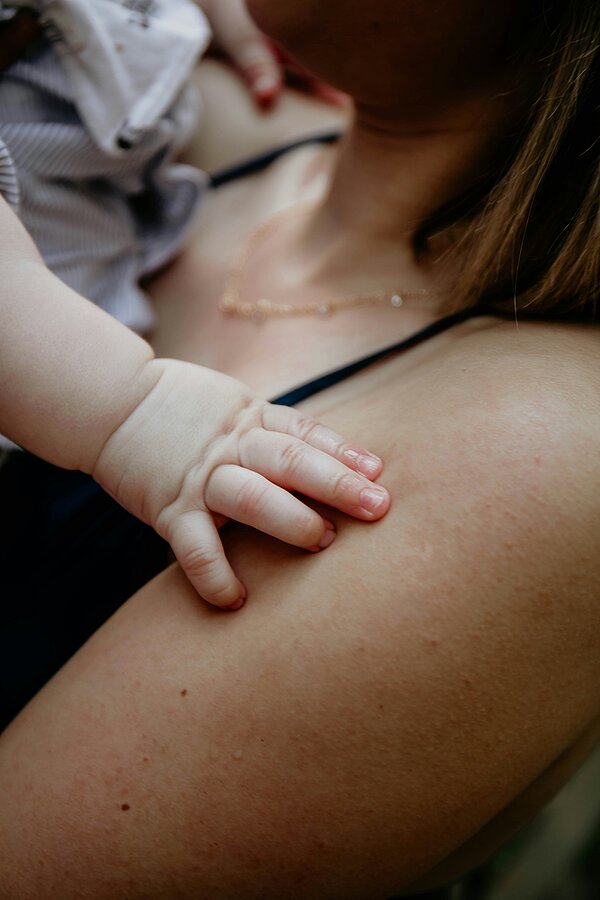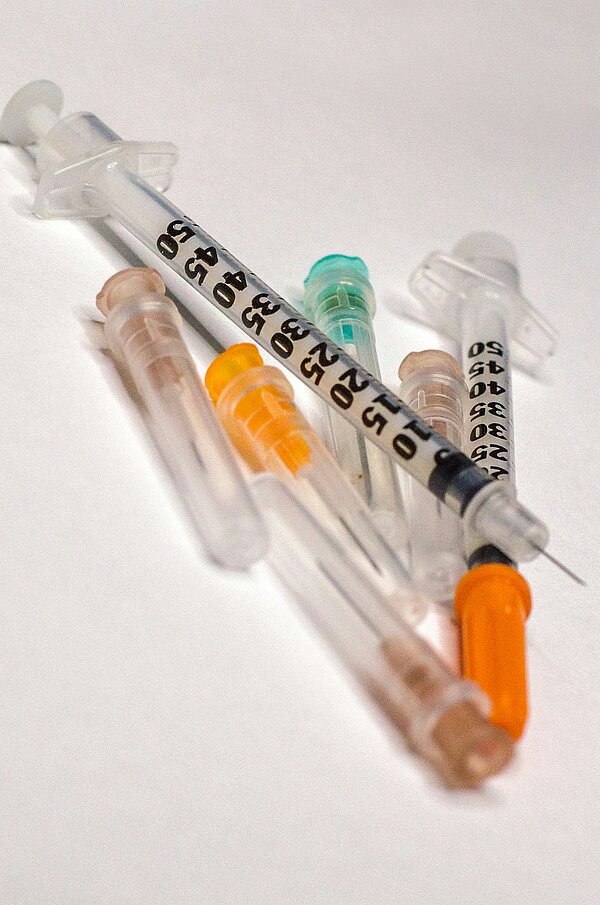Regarding vaccination, the Luxembourg Ministry of Health issues a set of recommendations with a view to “protecting children and adults against diseases that are dangerous or even fatal”. The authorities further specify that vaccinations “form an integral part of the prevention measures that will enable you and your children to lead a healthy life”.
This article was written based on the official recommendations of the Luxembourg health authorities.
Not mandatory, but strongly recommended
In Luxembourg, although vaccinations are not obligatory, they are strongly recommended by the Ministry of Health and Social Security. There are regular country-wide messages to promote vaccination and awareness-raising campaigns. It is the Superior Council of Infectious Diseases (Conseil Supérieur des Maladies Infectieuses - CSMI) that sets out the recommendations in terms of vaccinations. The Health Directorate implements them through a vaccination schedule.
“Vaccine-preventable” diseases are those that can be avoided through vaccination. The Ministry of Health and Social Security therefore recommends vaccination against these diseases at different stages of our lives, according to a definedschedule.
Vaccination of babies: from 0 to 23 months
| Who is concerned? | Which vaccinations against which diseases? | At what age is it best to get vaccinated? | What ailments do the relevant diseases cause? |
|---|---|---|---|
| Newborns | Immunisation against RSV, if the mother has not been vaccinated during her pregnancy | Preferably before leaving the maternity hospital | The Respiratory Syncitial Virus can cause bronchiolitis, an infectious respiratory disease, which is very common in babies under two years old, and which can lead to the child being hospitalised. |
| Infants | Combination vaccine: 1st dose: diphtheria, tetanus, whooping cough, Haemophilus influenzae type b infections, poliomyelitis, hepatitis B | From 2 months | Diphtheria affects the respiratory tract and can cause suffocation and asphyxia. Tetanus leads to muscle contractions that are often fatal. Haemophilus Influenzae type b invasive infections cause meningitis, epiglottitis and arthritis. Poliomyelitis (known as “polio”) leads to diarrhoea, severe and long-term muscular paralysis. Hepatitis B causes a liver infection and can cause chronic hepatitis. |
| Rotavirus: 1st dose | Rotavirus can lead to severe gastroenteritis. | ||
| Pneumococcal infections: 1st dose | Invasive pneumococcal infections cause bacterial meningitis and blood infections, the effects of which can be fatal. | ||
| Rotavirus: 2nd dose. Meningococcal B disease: 1st dose | From 3 months | Meningococcal disease causes severe infections such as meningitis and septicaemia. | |
| Combination vaccine: 2nd dose | From 4 months | ||
| Pneumococcal infections: 2nd dose | |||
| Rotavirus: 3rd dose | |||
| Meningococcal B disease: 2nd dose | From 5 months | ||
| Young children | Combination vaccine: 3rd dose. Pneumococcal infections: 3rd dose. | From 11 months | |
| MMRV vaccine: 1st dose: measles, mumps, rubella, varicella (chickenpox) | From 12 months | Measles is a very contagious disease, with complications that can cause irreversible brain damage and even death. Mumps leads to an inflammation of the salivary glands and causes severe complications (meningitis, deafness). Rubella is extremely dangerous for pregnant women. The virus affects the foetus, causing birth defects and even stillbirth. Varicella can lead to serious complications, especially in pregnant women and newborns. | |
| Meningococcal B disease: 3rd dose | |||
| Meningococcal ACWY: 1st dose | From 13 months | Meningococcal disease causes severe infections such as meningitis and septicaemia. | |
| MMRV vaccine: 2nd dose: measles, mumps, rubella, varicella (chickenpox) | From 15 to 23 months |
Vaccination of children and adolescents: from 5 to 20 years old
| Who is concerned? | Who is concerned? | At what age is it best to get vaccinated? | What ailments do the relevant diseases cause? |
|---|---|---|---|
| Young children | Combination vaccine: booster | From 5-6 years | |
| Pneumococcal catch-up vaccine: if not yet vaccinated | |||
| Older children | Pneumococcal catch-up vaccine: if not yet vaccinated | From 9-14 years | |
| Human papilloma virus (HPV): 2 doses around the age of 12 | The Human papilloma virus infection can, in some cases lead to serious complications such as cancer. | ||
| Adolescents | Combined vaccine: booster around the age of 15-16 years | From 15-20 years | |
| Meningococcal ACWY: booster around the age of 15-16 years | |||
| Human papilloma virus (HPV) catch-up vaccine: 2 doses, if not yet vaccinated, at around the age of 15-20 years |
Vaccination of adults
You can be vaccinated at any age, it's never too late.
General boosters :
It is recommended that, every 10 years, adults have a booster of the combination vaccine that protects against diphtheria, tetanus, whooping cough and poliomyelitis. Even if we no longer encounter certain diseases, it is important to continue to vaccinate against them, because without doing so, they can reappear quickly and cause harm, particularly to more vulnerable groups.
Adults born after 1980, who have not received 2 doses of the Measles-Mumps-Rubella combination vaccine, are invited to have a booster.
People aged over 65 years:
For people aged over 65 years, the Ministry of Health and Social Security recommends vaccination against:
- Invasive pneumococcal infections
- Shingles (herpes zoster).
People with a weakened immune system and those at risk:
People aged over 18 years, with a weakened immune system due to illness or treatment are invited to have a vaccination against shingles.
For pregnant women, the government recommends the following vaccinations:
- People aged over 18 years, with a weakened immune system due to illness or treatment are invited to have a vaccination against shingles.
- For pregnant women, the government recommends the following vaccinations:
- Seasonal flu, in winter, at any stage of pregnancy,
- Whooping cough, in the 2nd or 3rd trimester,
- RSV, if the pregnant woman is in good health, between the 32nd and 36th week of pregnancy,
- Covid-19.
People aged over 65 years and anyone at risk, is invited to have a vaccination against seasonal flu, each year.
Are you planning a trip?
If you are planning to travel to a faraway country, you must find out at least 6 weeks in advance about the vaccinations or boosters you need. The rate of infection of certain diseases differs from one region of the world to another.
The vaccinations that are generally recommended are those against: tetanus, diphtheria, hepatitis A and measles. Depending on the destinations, you should also be vaccinated against cholera, Japanese encephalitis, typhoid fever etc.
To find out more, the Ministry of Health and Social Security recommends that travellers make an appointment at the Travel Clinic of the Centre Hospitalier de Luxembourg (CHL) sufficiently in advance.
Certain vaccines are free of charge
The vaccines of the Luxembourg national programme are provided free of charge by the State to the vaccinating doctors. For these vaccines, patients only have to pay the cost of the appointment.
The cost of some vaccines is covered infull by the CNS (National Health Fund). These include:
- Seasonal flu: for people aged 65 years and older, as well as other target groups
- Invasive pneumococcal infections; for people in good health aged 65 years to 85 years, as well as other target groups
- Human Papilloma Virus: for people aged between 9 and 21 years old, as well as people with a weakened immune system
The electronic vaccination booklet is an easy way to keep track of vaccinations
If you have health insurance in Luxembourg, the electronic vaccination booklet (carnet de vaccination électronique – CVE) implemented by the eHealth agency is a digital tool that makes it possible to centralise all the information associated with your vaccination history. Once you have given your consent, your vaccinating doctor will create it and fill it out for you. This replaces the former yellow vaccination card, which is nonetheless still valid currently.
Did you know?
The first vaccine was invented in the 18th century by Edward Jenner, an English doctor. At the time, he had observed that people infected with a disease transmitted by cows, which was very closely related to smallpox, seemed to be immune to the latter. One day in 1796 he decided to deliberately transmit this disease to a small boy and then inoculate him with the smallpox virus a few weeks later. The child did not develop the disease. “Vaccination” was born, the name taken from “variolae vaccinae” - smallpox of the cow (now known as “cowpox”).
There followed several decades of experiments and research until, in the 1960s, the WHO (World Health Organisation), implemented a global vaccination programme to protect the population against several viruses and bacteria. Hence vaccines demonstrated their efficacy. To this day, smallpox is considered eradicated, poliomyelitis has disappeared from Western Europe and other serious illnesses such as diphtheria, tetanus, and even whooping cough have virtually vanished from Luxembourg.
What's the best health coverage for you?
Discover

